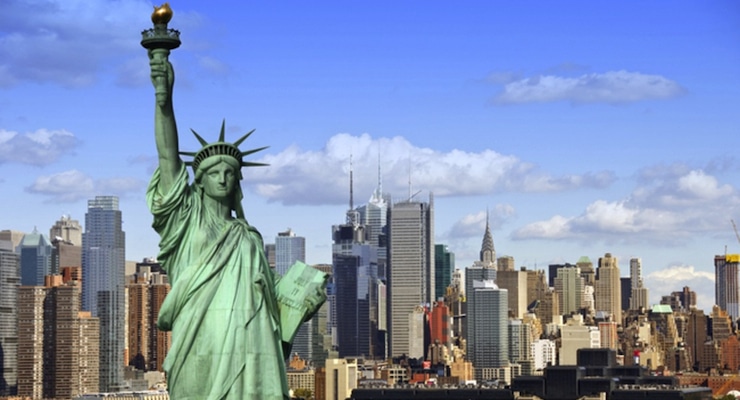

Statue of Liberty in front of the New York City skyline.
At the risk of oversimplifying, libertarians want to minimize the level of government coercion is society. That’s why we favor both economic freedom and personal liberty. Simply stated, you should have the right to control your own life and make your own decisions so long as you’re not harming others or interfering with their rights.
That’s a philosophical or moral argument.
There’s also the utilitarian argument for liberty, and that largely revolves around the fact societies with more freedom tend to be considerably more prosperous than societies with lots of government.
I’ve repeatedly made this argument by comparing the economic performance of market-oriented jurisdictions and statist ones.
Let’s look at some new evidence. Based in Lausanne, Switzerland, the Institute for Management Development is a highly regarded educational institution that publishes an annual World Competitiveness Yearbook that basically measures whether a nation is a good place to do business.
So it’s not a measure of economic liberty, at least not directly. And the quality of governance matters for the IMD rankings (presumably based on something akin to the European Central Bank’s measure of “public sector efficiency“).
But you’ll notice a clear link between economic liberty and competitiveness.
Here are the top-10 nations. (you can look at the rankings for all nations byclicking here).

As you might suspect, there’s a strong correlation between the nations that are competitive and those that have smaller governments and free markets.
Indeed, three out of the top four jurisdictions (Hong Kong, Singapore, andSwitzerland) rank in the top four for economic liberty according to Economic Freedom of the World.
And I’m happy to see that the United States also scores very highly, even if we only rank 17 out of 157 for economic freedom.
Indeed, every country in IMD’s top 10 other than Sweden is ranked in the top quartile of EFW.
You also probably won’t be surprised by the countries getting the worst scores from IMD.
Congratulations to Venezuela for being the world’s least competitive nation. Though that might be an overstatement since IMD only ranks 61 jurisdictions. If all the world’s countries were included, Venezuela presumably would beat outNorth Korea. And maybe a couple of other squalid outposts of statism, such asCuba.
It’s also worth noting that Greece gets consistently bad scores. And I’m not surprised that Argentina is near the bottom as well (though it has improved since last year, so hopefully the new government will continue to move in the right direction).
By the way, it’s worth noting that economic freedom is a necessary but not sufficient condition for competitiveness. Jordan, for instance, ranks in the top 10 for economic freedom but gets a low score from IMD, presumably because the advantages of good policy don’t compensate for exogenous factors such as geopolitical risk and access to markets.
The moral of the story, though, is that free markets and small government are the recipe for more prosperity. And those policies are probably even more important for nations that face exogenous challenges.
[mybooktable book=”global-tax-revolution-the-rise-of-tax-competition-and-the-battle-to-defend-it” display=”summary” buybutton_shadowbox=”true”]







